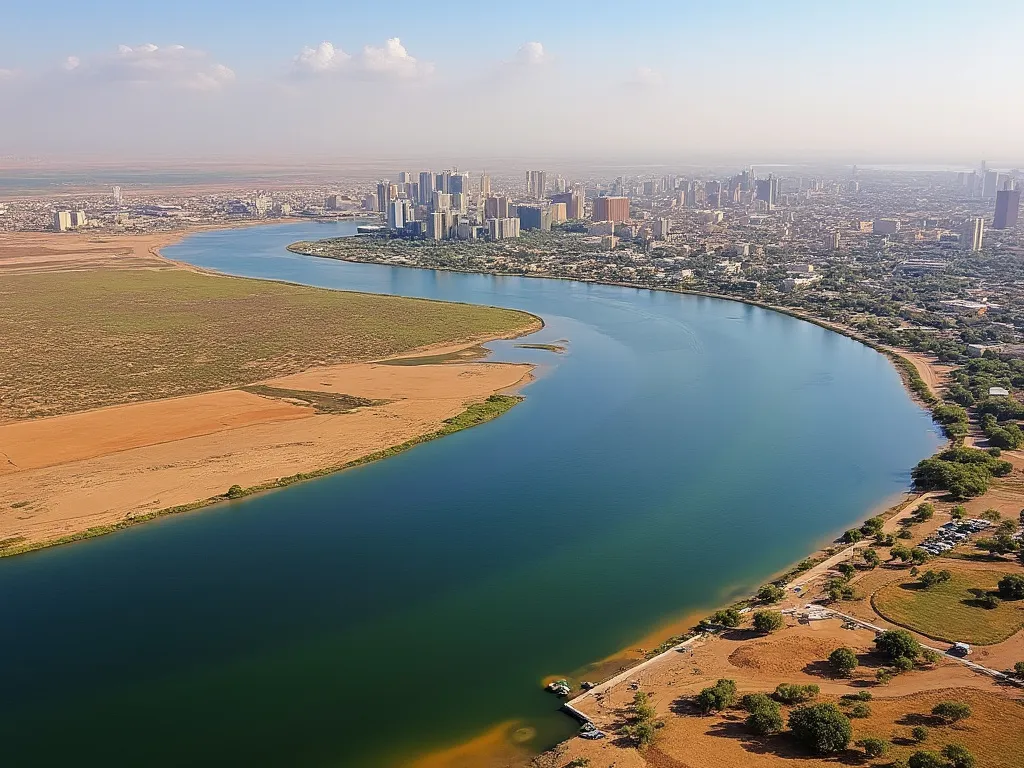
Khartoum is the capital and largest city of Sudan, located at the confluence of the White Nile and the Blue Nile rivers. It is a city with a rich history and cultural heritage, known for its vibrant markets, stunning architecture, and warm hospitality.
Khartoum Information
| Country | 🇸🇩 Sudan |
| Population | 5,345,000 |
| Coordinates | 15.6333° N, 32.5333° E |
| Area | 1,010 km² |
| Climate | Hot desert climate |
| Language | Arabic, English |
| Currency | Sudanese pound |
| Time zone | Central Africa Time (CAT) UTC+2 |
| Proximity to other major cities | Omdurman (20 km), North Khartoum (20 km), Port Sudan (675 km) |
Historical Background of Khartoum
Khartoum was founded in 1821 by the Egyptians and quickly grew into a major commercial center. The city has played a significant role in the country's history, serving as the capital of various dynasties and empires. In the late 19th century, Khartoum was the site of a famous siege by the Mahdist army, led by Muhammad Ahmad al-Mahdi.
Geographical Location of Khartoum
Khartoum is situated in the north-central part of Sudan, where the White Nile and the Blue Nile rivers meet. The city's location has made it an important hub for trade and commerce, connecting Africa to the Middle East and Europe. Khartoum's geography has also shaped its climate, which is hot and dry for most of the year.
Cultural Significance of Khartoum
Khartoum is a city of great cultural significance, known for its vibrant markets, stunning mosques, and traditional cuisine. The city is home to the famous Khalifa House Museum, which showcases the history of Sudan, as well as the Grand Mosque, one of the largest and most beautiful in the country.
Economic Importance of Khartoum
Khartoum is the economic heart of Sudan, accounting for a significant portion of the country's GDP. The city is a major hub for trade, finance, and industry, with a strong focus on textiles, manufacturing, and oil production. Khartoum's economic growth has led to rapid urbanization and infrastructure development.
Interesting Facts About Khartoum
- Khartoum is home to the University of Khartoum, one of the oldest and most prestigious universities in Africa.
- The city has a rich musical heritage, with traditional Sudanese music and dance being an integral part of Khartoum's cultural scene.
- Khartoum is known for its stunning architecture, with many historic buildings and mosques that date back to the Ottoman and Mahdist eras.
- The city is a popular destination for birdwatchers, with many rare and endangered species of birds migrating through the area.
Tourist Attractions in Khartoum
- The National Museum of Sudan, which houses a vast collection of artifacts and exhibits on Sudanese history and culture.
- The Grand Mosque, one of the largest and most beautiful mosques in the country.
- The Khalifa House Museum, which showcases the history of Sudan and the Mahdist State.
- The vibrant souks (markets) of Khartoum, where visitors can buy everything from local handicrafts to exotic spices.
- The confluence of the White Nile and the Blue Nile rivers, a scenic spot with stunning views of the city.
Conclusion on Khartoum
Khartoum is a city of rich history, stunning architecture, and warm hospitality. From its vibrant markets and traditional cuisine to its cultural significance and economic importance, Khartoum is a destination that has something for everyone. Whether you are a history buff, a culture vulture, or an adventure seeker, Khartoum is a city that will leave you with unforgettable memories and a deep appreciation for the beauty and diversity of Sudan.
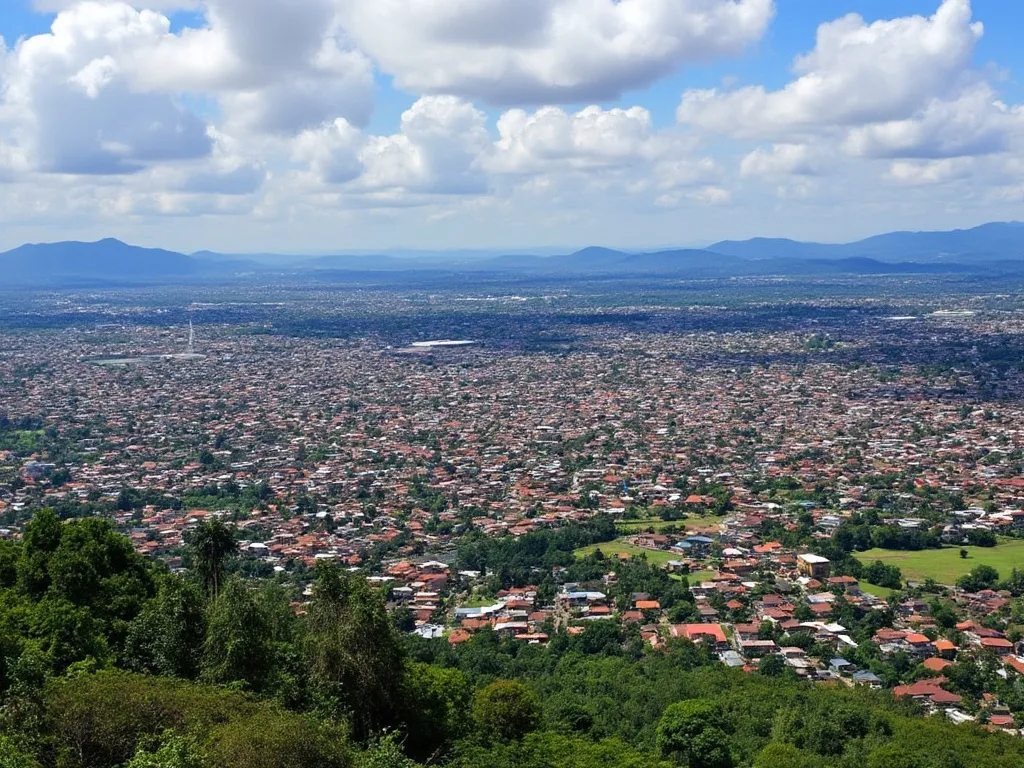 Kigali
Kigali
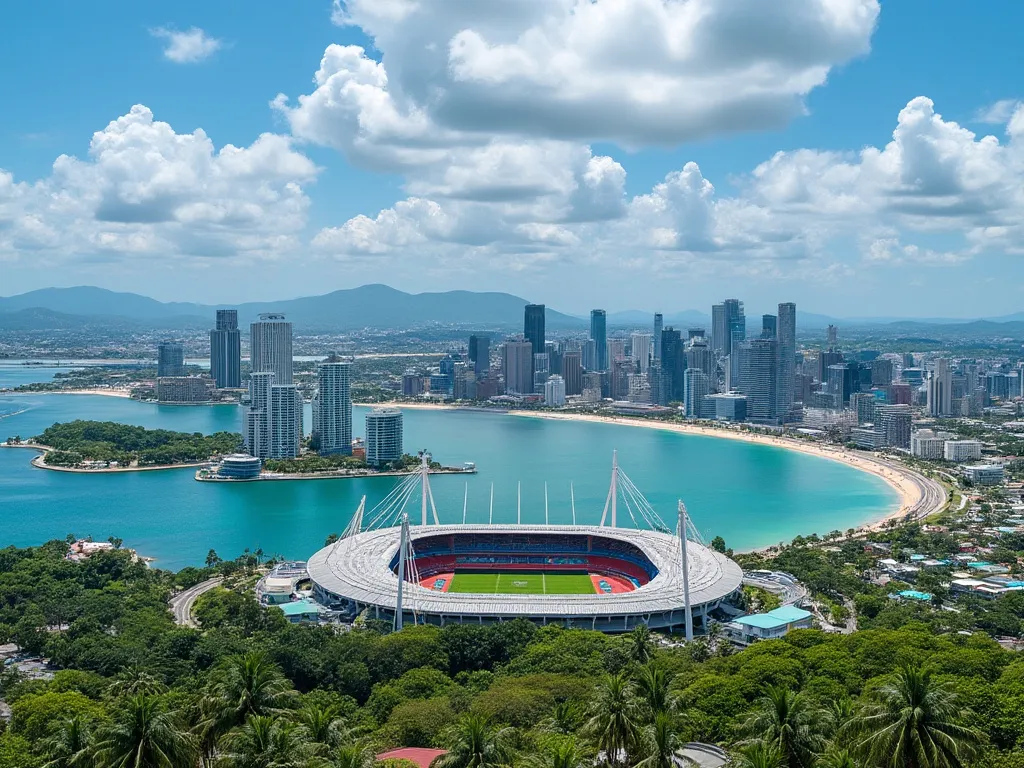 Kingston
Kingston
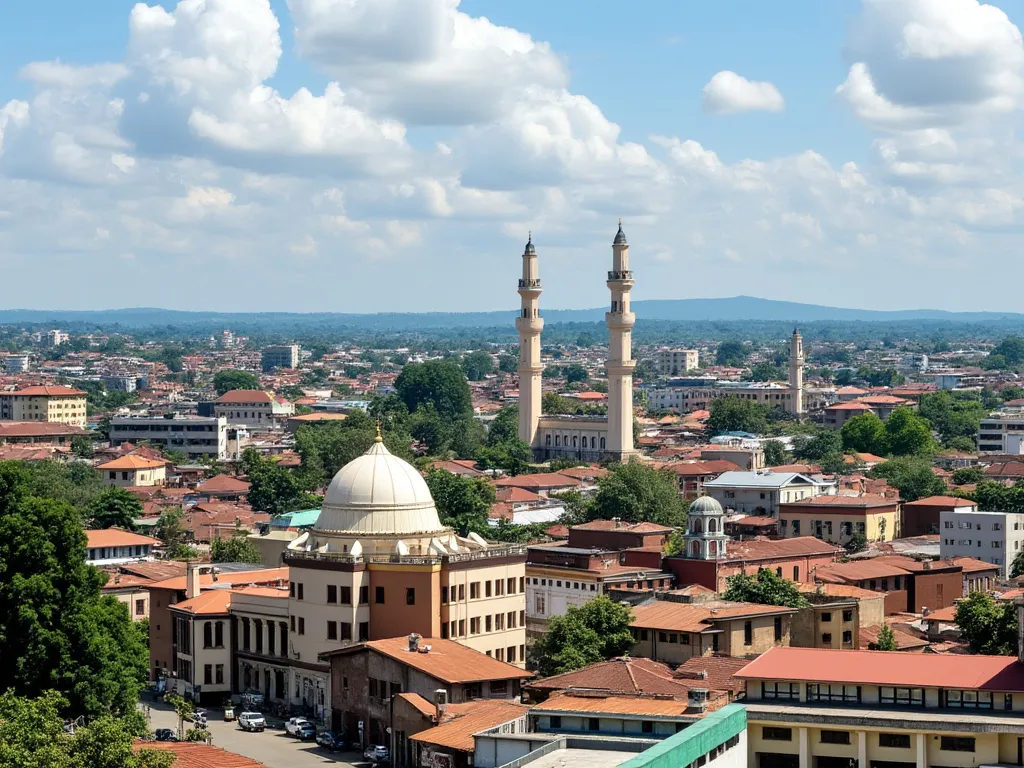 Kampala
Kampala
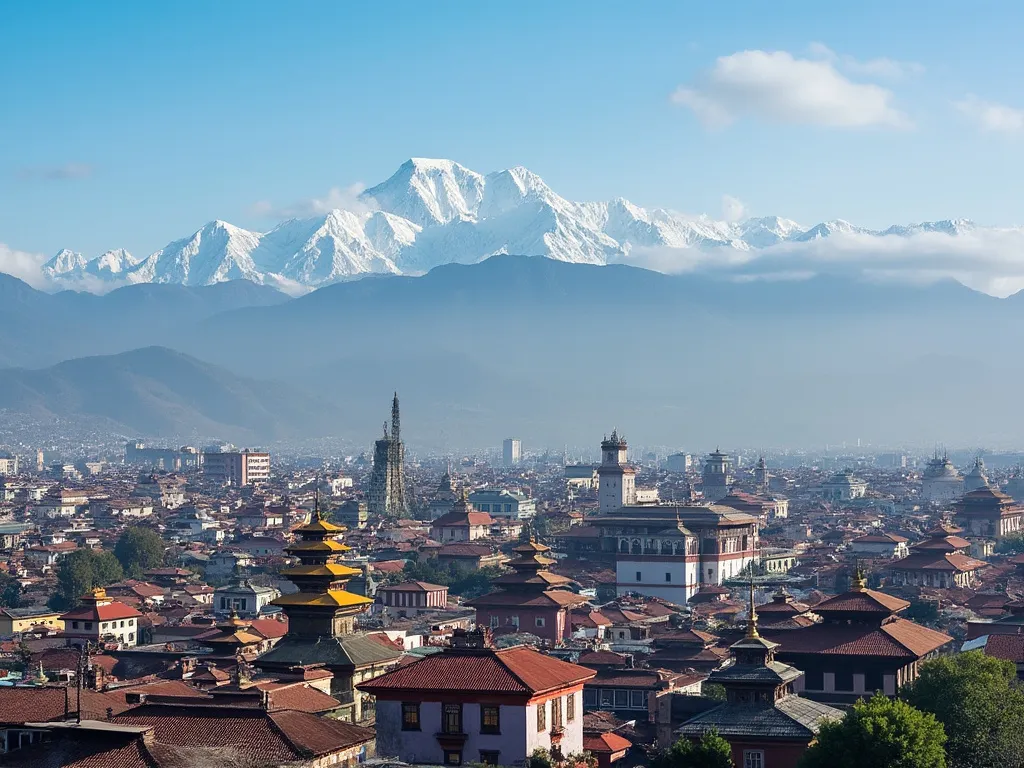 Kathmandu
Kathmandu